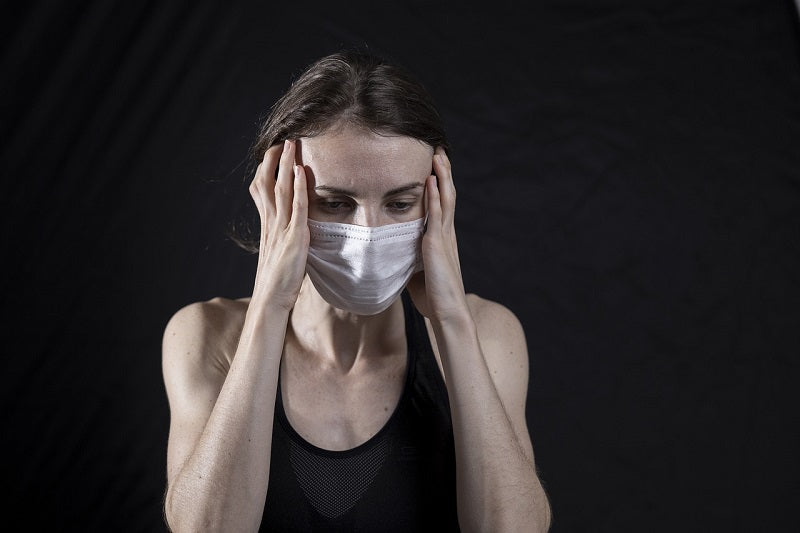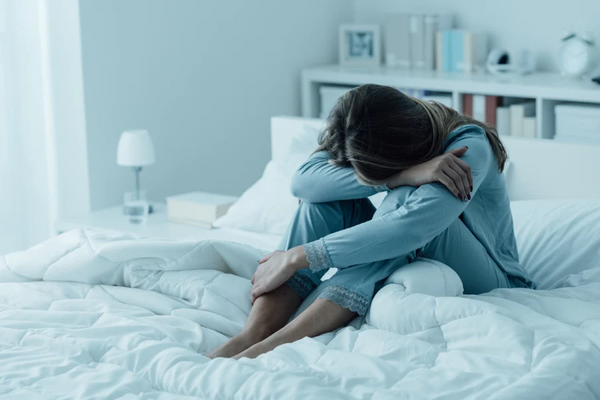Anxiety: 16 Possible Causes You May Not Be Aware Of
Many people deal with feelings of anxiety and panic. However, the treatment for any anxiety you experience should depend on what’s really causing it.
Not everyone experiences anxiety in the same way. I want to bring to your attention that while there are some well-known drivers of anxiety, there are also some causative factors which are not so obvious. If your drivers or triggers are not that apparent, it may be worth doing some investigating.
What can be causing your anxiety?
Anxiety can vary from person to person. Below are some factors to consider when exploring the underlying cause/s of anxiety:
1. Genetic predisposition
Certain genetic polymorphisms affect the way your body metabolizes nutrients, chemicals and neurotransmitters. Single nucleotide polymorphisms in genes that code for certain enzymes can affect your overall mood and mental health. (e.g. GAD, MTHFR, HNMT, COMT)
2. Neurological imbalances
Brain chemicals or neurotransmitters such as GABA, noradrenaline, glutamate, serotonin and dopamine all play a role in mood regulation and stabilization. If these are imbalanced, they may manifest as feelings of anxiety in your mind and body.
3. Digestive microbiome imbalance
The population of bacteria in your digestive tract communicates with your brain via the vagus nerve, and a compromised microbiome will impact your overall mood.
4. HPA axis dysfunction
Your HPA axis is the line of communication between your brain and adrenal glands. A neuroendocrine response to psychological stress causes your adrenal glands to secrete high amounts of cortisol. Chronic stress and other factors which stimulate your daily cortisol rhythm can cause you to feel anxious.
5. Psycho-emotional stressors
Stressful events, unresolved traumas, and PTSD (post-traumatic stress disorder) can all cause feelings of anxiety.
6. Alcohol and drugs
Although alcohol depresses your nervous system, it can cause or worsen anxiety. It affects the balance of neurotransmitters in the brain and as alcohol wears off and gets detoxified, it's metabolite acts as a histamine liberator which can bring on physical symptoms of anxiety. Certain drugs which act as stimulants, as well as psychoactive substances, can significantly drive anxiety.
7. Certain medications
Thyroid medication, ADHD treatment, steroids, anticonvulsants, medicines for Parkinson's and asthma are some examples of pharmaceutical drugs which can potentially cause anxiety. Although not technically considered a medication, caffeine contained in anything we consume can also drive anxiety.
8. Hormone imbalances
This includes imbalances of hormones from the rest of our endocrine system, in addition to our female sex hormones. Excess thyroid hormones will manifest as feelings of physical and mental anxiety. Prolonged and elevated cortisol and adrenaline can drive anxiety, too. In a state of estrogen dominance - when estrogen is too high in comparison to progesterone - anxiety and mood issues can develop.
Any season of life where there is a significant shift in hormonal changes can bring about anxiety. Examples include the premenstrual phase, pregnancy, lactation, postpartum, and transitioning into menopause.
9. Infections
This may surprise some of you but chronic or latent dormant infections can be a driver of anxiety. Stealth infections such as Lyme disease and co-infections like Epstein-Barr virus can wreak havoc on your immune, lymphatic, and nervous systems, so they’re clearly another underlying cause of anxiety.
10. Adrenal tumors
This is very rare but worth the mention. Pheochromocytomas are tumors of the adrenal gland which secrete excess adrenaline. This, in turn, drives physical feelings of anxiety.
11. Cardiovascular disease
Sympathetic nerve activity felt during episodes of anxiety can manifest as tachycardia or a fast heart rate. Cardiovascular conditions which present with tachycardia or arrhythmias can cause anxiety and may even be mistaken for anxiety/panic disorder.
12. Blood sugar imbalances
When blood sugar levels are lower than normal, this is called hypoglycemia. Hypoglycemia can cause feelings of anxiety, weakness, trembling, dizziness and lightheadedness.
13. Low blood pressure
Similar to hypoglycemia, hypotension or low blood pressure can also cause feelings of dizziness, trembling, weakness, and lightheadedness. When blood pressure drops, your heart can speed up in an attempt to help increase blood pressure. This can further worsen feelings of anxiety.
14. Vestibular conditions
Though not a very well-known cause of anxiety, issues with the inner ear affect proprioception or your sense of physical position in space. Your inner ear governs your balance, and infections or vestibular migraines can make you feel dizzy, off-balance, and anxious.
15. Insomnia or lack of sleep
This is one of the leading contributors of anxiety, but an anxiety disorder can also cause a lack of sleep. Lack of sleep can cause you to become more stressed, further driving up adrenaline and cortisol which, in turn, will make it harder for you to sleep. It is a vicious cycle that needs to be broken so our article on how to improve sleep might just help!
16. Nutrient deficiencies
Iron aids with the oxygenation of tissue and a deficiency can cause you to feel breathless, dizzy, fatigued and lightheaded. It can also speed up your heart rate. A lack of B vitamins - specifically B12 - can cause pernicious anemia which can bring on physical symptoms similar to those associated with a lack of iron. Other B vitamins, such as B6 and B9, have a significant role in the production of brain chemicals and a lack of these can interfere with mood.
Low magnesium can also drive anxiety. It is required for so many enzymatic pathways and proper nervous system function, along with neurotransmitter production. It also plays an important role in the regulation of the HPA axis, which is in charge of your adrenals and the body's stress response. Other nutrient deficiencies which can cause anxiety include low zinc, Vitamin D, Omega 3 and even amino acids.
Treating Anxiety
Getting to the root cause of your anxiety is a very important step in finding the right treatment to address your condition. I encourage you to reach out to any of our HHY naturopaths so we can work together at finding what’s really causing those panic attacks and anxiety spells. We’ve worked with thousands of women who’ve successfully battled and conquered anxiety issues in their various life stages.
REFERENCES
Lin Wan, Yuhong Li, Zhengrong Zhang, Zuoli Sun, Yi He, Rena Li. Methylenetetrahydrofolate reductase and psychiatric diseases.Translational Psychiatry. 2018 Nov 5;8(1):242.
https://pubmed.ncbi.nlm.nih.gov/30397195/
Marc-Antoine Crocq. The history of generalized anxiety disorder as a diagnostic category. Dialogues in Clinical Neuroscience. 2017 Jun;19(2):107-116.
https://pubmed.ncbi.nlm.nih.gov/28867935/
Shigeo Miyata, Ryota Kumagaya, Toshikazu Kakizaki, Kazuyuki Fujihara, Kaori Wakamatsu, Yuchio Yanagawa. Loss of Glutamate Decarboxylase 67 in Somatostatin-Expressing Neurons Leads to Anxiety-Like Behavior and Alteration in the Akt/GSK3β Signaling Pathway. Frontiers in Behavioral Neuroscience. 2019 Jun 18;13:131.
https://pubmed.ncbi.nlm.nih.gov/31275123/
K Młyniec, M Gaweł, U Doboszewska, G Starowicz, G Nowak. The Role of Elements in Anxiety. Vitamins and Hormones. 2017;103:295-326.
https://pubmed.ncbi.nlm.nih.gov/28061974/
Kendall D Jeynes, E Leigh Gibson. The importance of nutrition in aiding recovery from substance use disorders: A review. Drug & Alcohol Dependence. 2017 Oct 1;179:229-239.
https://pubmed.ncbi.nlm.nih.gov/28806640/
Thomas Brandt, Marianne Dieterich. 'Excess anxiety' and 'less anxiety': both depend on vestibular function. Current Opinion in Neurology. 2020 Feb;33(1):136-141.
https://pubmed.ncbi.nlm.nih.gov/31743237/
Monique Aucoin, Sukriti Bhardwaj. Generalized Anxiety Disorder and Hypoglycemia Symptoms Improved with Diet Modification. Case Reports in Psychiatry. 2016;2016:7165425.
https://pubmed.ncbi.nlm.nih.gov/27493821/






















